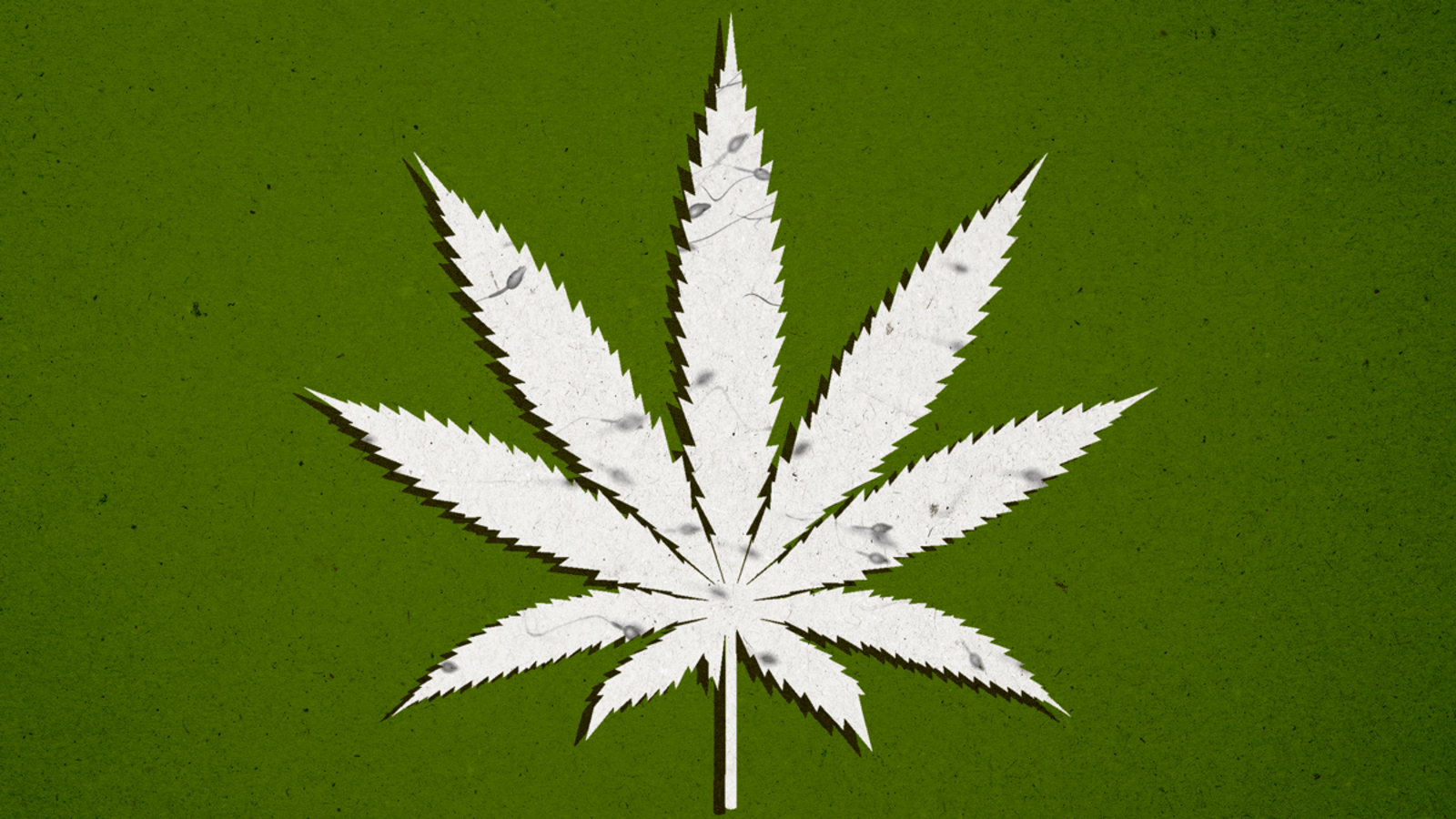When you get high on marijuana, your sperm gets high too—pot has been linked to lower sperm counts and concentrations.
But a new study, published Tuesday in the journal Human Reproduction, found that isn’t true with both current and former marijuana smokers, who had higher levels of sperm concentration than men who had never tried marijuana.
Men diagnosed with male factor infertility shouldn’t reach for the bong just yet though.
“This does not mean that using marijuana is going to increase your sperm count,” Jorge Chavarro, a Harvard researcher who studies the impact of nutrition and lifestyle changes on fertility and lead author on the study, told The Daily Beast.
“The most important message of this study is highlighting how little we know about how marijuana use impacts the health in general.”
This is, after all, just a single study. The handful of studies we have on marijuana and sperm health finds that getting high is linked to lower sperm counts. However, most of these studies are conducted among men with substance abuse disorders who were using a variety of different drugs in large amounts, so it’s difficult to parse the effects of marijuana on sperm health over any other factor.
Chavarro and his team invited 662 men seeking treatment at the Massachusetts General Hospital Fertility Center to be part of the research project between 2000 and 2017. Altogether, they provided 1,143 semen samples and answered a survey about their use of drugs, including marijuana.
After analyzing those sperm samples, researchers found that men who have previously smoked marijuana had a statistically significantly higher sperm concentration than men who had never smoked (62.6 million per milliliter versus 45.5 million per milliliter).
The men who said they used pot reported only a moderate amount, an average of two joints a day when they were using (whether or not they were currently using). The results rang true even when adjusting for factors like age, obesity, and their use of cocaine, cigarettes, and caffeine.
But the results are preliminary, Chavarro stressed. Scientists are still trying to understand the effects of moderate pot use before fertility clinics start educating their patients about the benefits of marijuana for sperm production.
Chavarro suspects that his study may in fact be demonstrating a reverse-causation relationship. The men who had higher sperm concentrations were also more likely to have higher levels of testosterone in their blood. In general, men with higher levels of testosterone are also more likely to engage in risk-seeking behavior—like drug use.
Still, it’s tantalizing to think about the what-ifs when it comes to marijuana and fertility. If it turns out that pot helps improve sperm production—and that’s a big “if,” says Chavarro—it could work with our endocannabinoid system, a neural communication network in which naturally-occurring chemicals called endogenous cannabinoids bind to cannabinoid receptors on nerve cells in order to send chemical messages throughout the body. Researchers already know that the endocannabinoid system plays a role in sperm production, thanks to studies in mice demonstrating that sperm production is severely affected in animals if their endocannabinoid system is knocked out.
While high levels of marijuana use have been linked to a decrease in sperm quality, it could be that moderate amounts of marijuana could actually enhance it. The active ingredients in marijuana, which are structurally similar to the naturally occurring cannabinoids in the body, could bind to cannabinoid receptors and actually support sperm production, Chavarro hypothesized.
“If you use a little, it’s probably OK,” said Chavarro. “If you use a lot, it’s not.”
Dolores Lamb, a male fertility expert and vice-chair for research in Urology at Weill Cornell Medicine, was not involved in the research but did review its findings. She pointed out that the group of men assessed in this study, the self-reported nature of the marijuana use, as well as the normal variability in semen characteristics, makes it very difficult for her to see how these results, mostly showing small changes, if any, could have any impact on men’s fertility potential at this moment.
“[It’s] hard to imagine how trying a marijuana cigarette once maybe 10 years beforehand (or more) might impact today’s values from a mechanistic perspective,” she said.
Lamb also points out that although the majority of men had normal semen characteristics, it’s difficult to say whether these men are representative of the general population.
Parameters like sperm concentration and motility can vary significantly between ejaculates, which is why men are usually asked to give several samples over a few weeks to get a more accurate picture of their sperm health, said Lamb.
Not only that, but fertility is assessed alongside the female partner, as research shows that barring a complete lack of sperm, semen analyses cannot predict with certainty a man’s ability to conceive a child.
Jesse Mills, director of the Men’s Clinic at the University of California, Los Angeles, also reviewed the study’s findings and echoed Chavarro’s warning that the study has no practical application for men struggling with infertility.
“Maybe one chemical of the dozens studied has a hormonal effect that stimulates the testicle to crank out more sperm, but that’s a stretch without any bench science to support the hypothesis,” he said. “Until there’s a study showing men who actively smoke weed have better sperm counts, I’ll keep my prescription pad in my pocket.”






